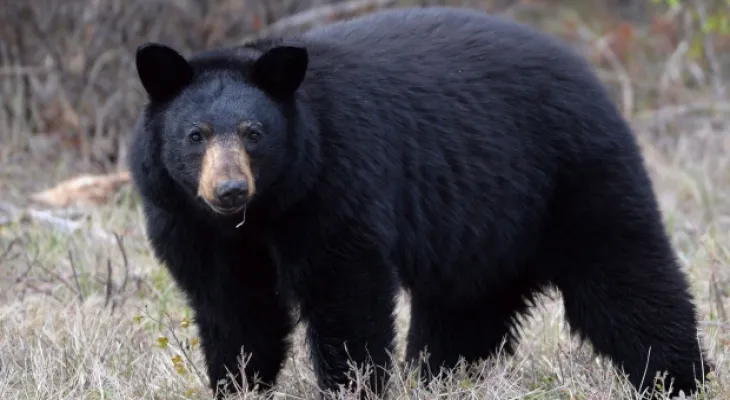Search here
Newspaper
Search here

Arab Canada News
News

Published: March 18, 2024
The milder winter season and steadily rising temperatures have a significant impact on sleep patterns and wildlife movement in Ontario, with at least one expert saying it is unclear how climate change will affect wildlife in the long term.
Earlier this month, the provincial government issued a statement warning residents to be "more cautious" as officials received reports of animals emerging from hibernation early, noting that mild winter weather and lack of snow are among the main reasons for this.
Annie Langlois, a biologist and coordinator of remote areas who follows the Canadian Wildlife Federation program, said that although bears often wake up during hibernation, it is unusual for them not to go back to sleep.
She said this is a problem since there is no natural food for the animals to feed on.
Langlois told CTV News Toronto in an interview: "This is the biggest issue we are facing right now because wildlife essentially needs habitats where all their needs are met in terms of food and shelter."
"So animals that wake up too early from hibernation, (or) come to Canada earlier than usual, they face conditions that are not the best for them."
Bears can feed on berries and even "juicy twigs" in the spring, but Langlois said that since the trees have not started budding, these food sources are still scarce at this time. As a result, animals like bears may seek food elsewhere such as garbage dumps or bird feeders.
She added, "Bears pose somewhat of a threat right now," noting they may be more aggressive towards smaller animals.
"They have lost a lot of weight over the winter... and the truth is we do not know what will happen in the long term.
In a statement, a spokesperson for the Minister of Natural Resources and Forestry said that bears usually come out of hibernation from early to mid-April in central Ontario, and from mid-April to early May in northern Ontario.
The spokesperson explained, "With unusually high temperatures, bears may emerge earlier or in some cases, leave their dens." "Some bears might find another place to sleep or may start searching for food, which is why we opened the bear reporting line one month earlier."
Langlois said climate change also affects population movement.
For example, robins come to Canada and face a shortage of insects they feed on.
She said red foxes are moving northward, pushing Arctic foxes out of their natural habitat.
"There are examples across Canada of dealing with either shorter winters or milder winters or less sea ice or less lake ice," and "we will definitely see the effects of that on many species."
"The changes happening now are very rapid, preventing a large group of wildlife species from adapting... We will see how population trends and their distribution, and all these things develop over time."
When asked whether milder temperatures affect other wildlife groups, or if there are any concerns or action plans available regarding the impact of climate change on wildlife, the ministry responded that it does not have this information.
A quietly released report commissioned by the Ontario government in January 2023 indicated that by the end of the century, the province will on average see more than 60 days exceeding 30 degrees Celsius.
On average, these parts of the province currently experience up to 18 extremely hot days annually.
As such, the number of extreme cold days is expected to decrease, from an average of more than 55 days annually in northern Ontario to about 12 days annually by 2080.
The 534-page report stated: "The rising concentrations of greenhouse gases in the atmosphere are changing the Earth's climate, leading to increases in average global temperatures, variability, and extreme weather events."
"These changes cause unprecedented impacts, altering ecosystem structure and function, damaging infrastructure, disrupting business operations, and harming human health and well-being."
Regarding agriculture in Ontario, the report notes the sector faces "reduced productivity, crop failures, and livestock deaths," with a very high risk of climate change impacts by the end of the century, and also notes that levels of risk are likely to rise for all natural systems and species in Ontario to a high or very high level by 2050.
According to David Phillips from Environment Canada, this winter has been the warmest in Canada in at least 77 years.
He added, "It has been exceptionally warm so far, with below-average snowfall."
Comments